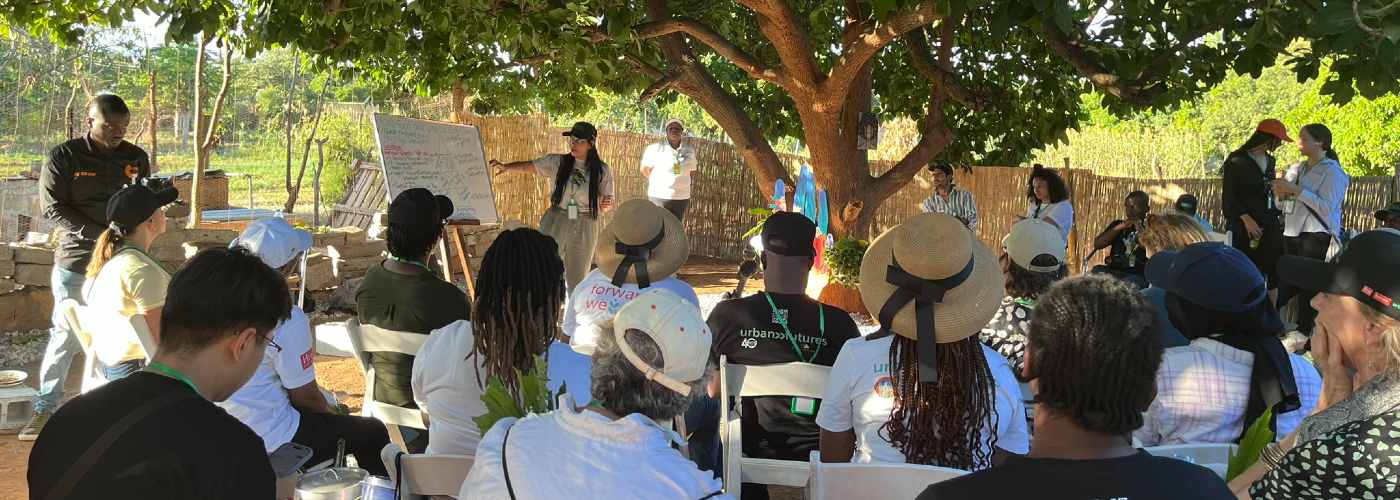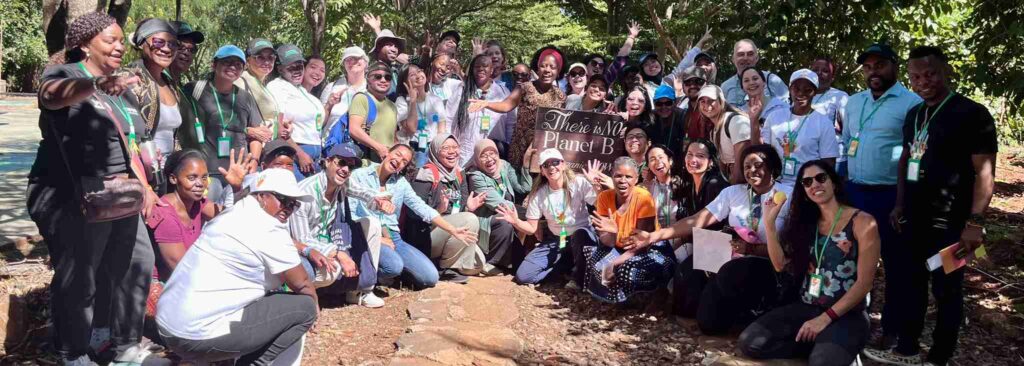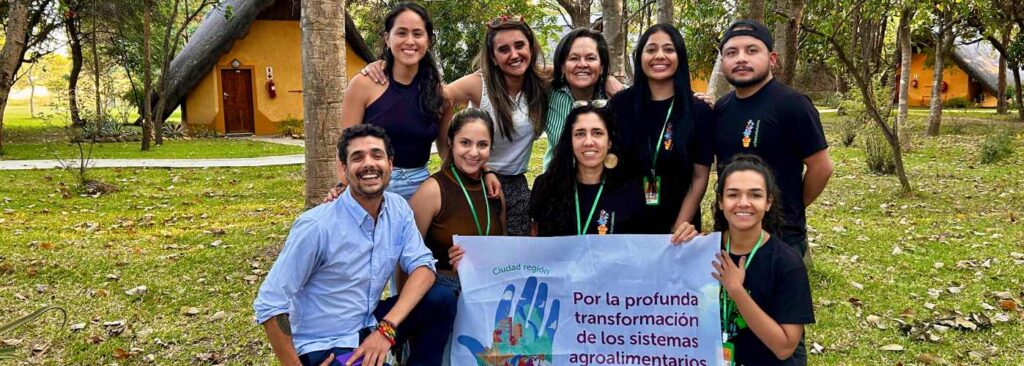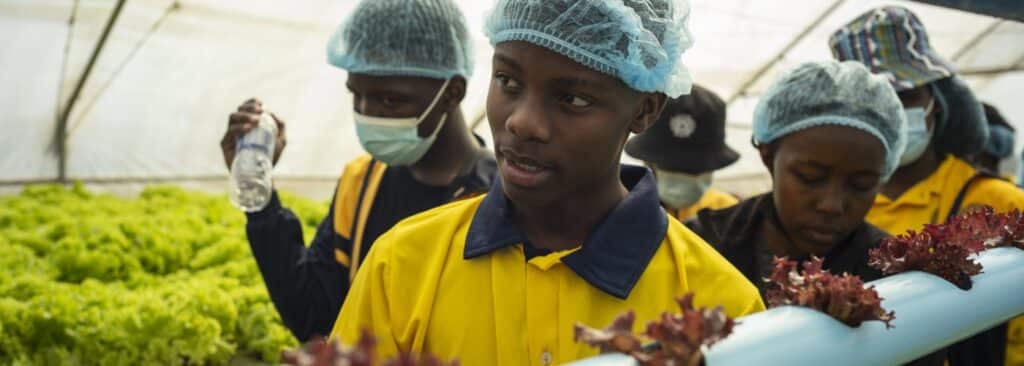In a bid to address the urgent challenges of climate change and foster local innovations, Lupane State University (LSU) has teamed up with several youth empowerment organizations, including Hivos’ Urban Futures program, to equip young people with the skills needed to become climate change champions. This initiative, which reflects a growing global emphasis on sustainable urban development, aims to bridge the gap between local communities and climate adaptation strategies.
The six-week course, “Advanced Urban Green Skills Technologies,” is designed to empower young people with the practical knowledge necessary to tackle climate-related issues. According to Langton Moyo – project coordinator at our Urban Futures partner, the Bulawayo Vendors and Traders Association – 52 young people have already enrolled in the course. “Urban Futures is focused on building a generation of youth equipped to pioneer solutions in climate adaptation,” said Moyo.
“The course encourages students to develop practical innovations that can assist farmers in adapting to climate change.”
Training a new generation of climate change champions
Divided into two groups of 26, the students participating in the program are being trained to develop innovative solutions to combat the effects of climate change, particularly in areas such as water scarcity and rising temperatures. “Our goal is to build a network of climate change champions who can address critical issues like diminishing water supplies and the rising demand for food production,” Moyo explained.
Over the course of six weeks, the participants not only engage in theoretical lessons but also undertake practical field trips every Friday to local farms in the Bulawayo area. These excursions allow the young innovators to witness firsthand the challenges faced by farmers in adapting to changing climate conditions. One such visit was to a communal village in Mbalabala, where the group spent time with local Brahman cattle breeder Jairos Mahlangu, who has successfully adapted to limited grazing land by diversifying into dairy farming.
Practical lessons for real-world solutions
“The course encourages students to develop practical innovations that can assist farmers in adapting to climate change,” Moyo noted. These lessons at LSU help participants gain a deeper understanding of how farmers are managing challenges such as water shortages and dwindling pastures. The intergenerational aspect of the program allows young climate change champions to learn from the experiences of older generations, which is crucial in developing sustainable agricultural practices.
From Monday to Thursday, students engage in classroom-based lessons, but the fieldwork is considered an essential part of the program. “It’s important for the students to learn from older farmers who are already grappling with the impacts of climate change. These trips give them an appreciation of the realities on the ground,” added Moyo.
Empowering youth through accessible education
As LSU lecturer Nkululeko Mpofu explained, the course is open to all youths, regardless of their academic background. “Not every young person has access to university education, so by partnering with organizations like Urban Futures, we’re able to expose young innovators to the technologies LSU offers, particularly in agriculture,” Mpofu said.
This collaboration between LSU, the Urban Futures program, and other youth-focused organizations reflects a growing recognition of the importance of involving young people in the fight against climate change. By equipping the next generation with the knowledge and skills to innovate and adapt, initiatives like this are paving the way for a more resilient and sustainable future.
Originally posted in The Chronicle Zimbabwe. By Raymond Jaravaza.




